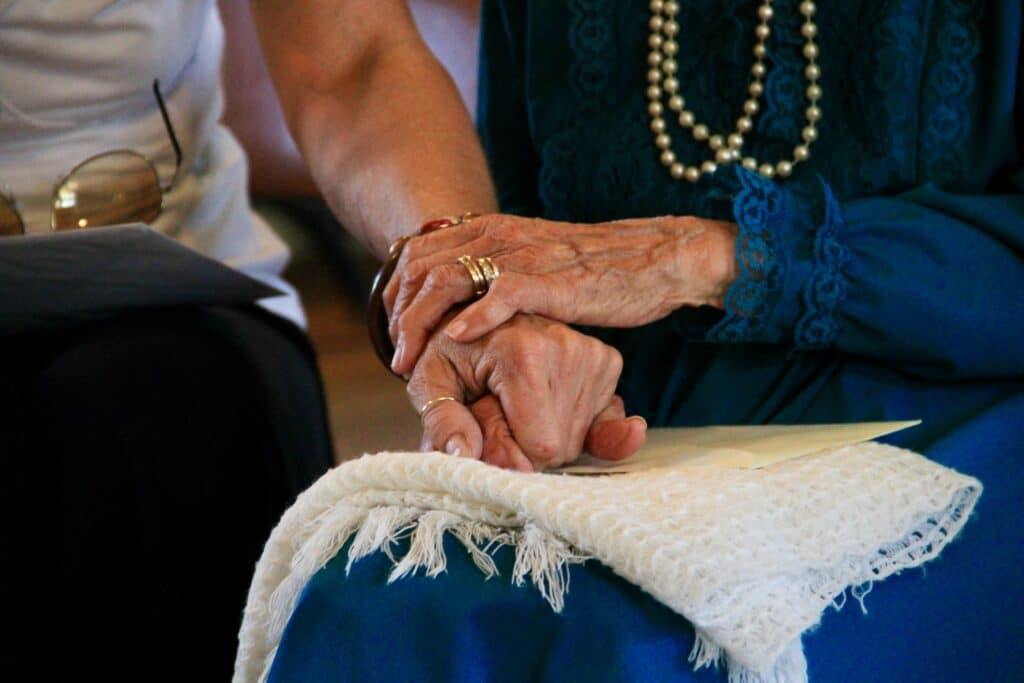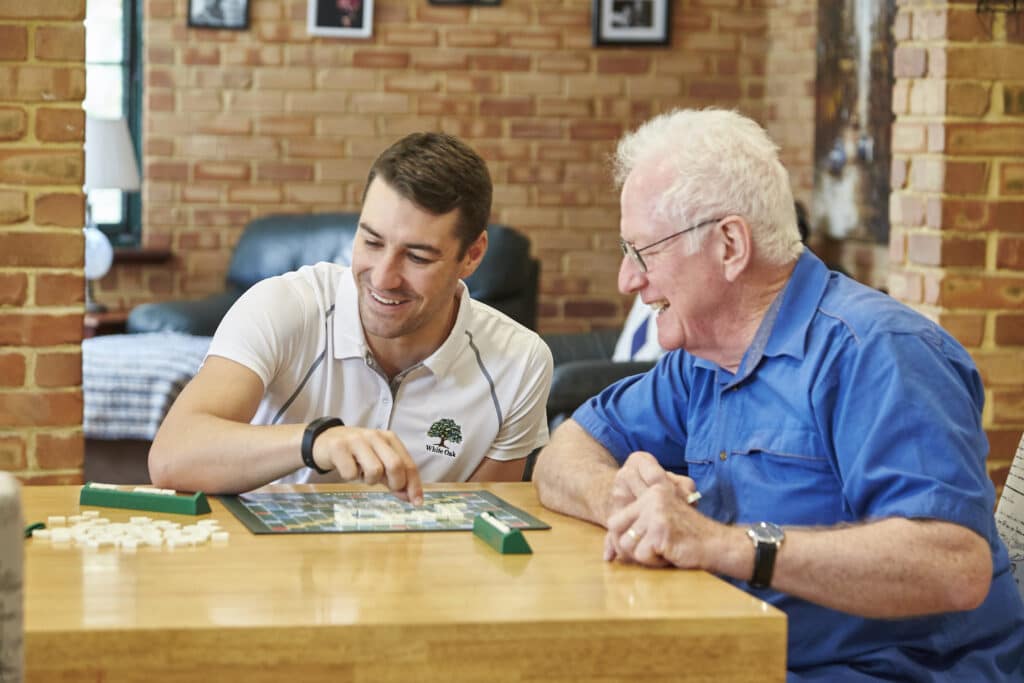White Oak Home Care Services expands its community involvement by managing the Villa Dalmacia Day Centre in Spearwood. Supported by Hall & Prior, it provides culturally appropriate care for clients with Italian, Croatian, and Portuguese heritage, fostering a vibrant hub of culture and community.
How to Talk to Your Elderly Loved One About In-Home Care
In-home elderly care is an invaluable service but bringing up the topic with a loved one can be extraordinarily difficult. In this blog, we’ll help you navigate these delicate and sensitive conversations, so that you can ensure your parent or grandparent receives the support they need in a dignified and consensual manner.
Why are many elderly people so resistant?
The thought of in-home care can sound appealing to family members of an elderly person. From assurance that daily chores are completed to peace of mind that critical healthcare assistance is provided, care at home offers many benefits.
But we all need to remember that for many seniors the idea is extremely confronting. The transition itself could be a concern as many elderly people take comfort in the regularity and familiarity of their routine. Additionally, however, there is an intense fear of loss of independence.
Being independent is a core value of human beings, and even many elderly people who require in-home care are hesitant to accept it if it comes with the loss of perceived independence.
Approaching the conversation about in-home care
The most important point to bear in mind when you’re bringing up the topic with your loved one is that you need to be open and honest.
It can be tempting to keep the conversation vague and non-committal because the discussion is likely to be very difficult. Expressing your interest in ensuring their safety, well-being and overall quality of life will – if not persuade them – at least help them understand your pure, loving intentions.
Being empathetic and understanding of how they’re feeling in this situation is also key. It’s easy to get frustrated at resistance to the idea of necessary in-home care. Try your utmost to exercise patience during the conversation and allow them to speak through their doubts, fears and objections.
Tips for having the ‘in-home care conversation’
1. Choose the right time and place
Setting your conversation up for success starts with choosing an appropriate time and place. Starting the discussion when you have an impending appointment will make the conversation rushed and ineffective. Avoid late nights or other settings where neither party is able to engage fully.
Find a quiet and comfortable setting where you have sufficient privacy for what can be a very personal discussion. Ensure there are no other distractions, even from your own mobile phone, and wherever possible have the conversation one-on-one and in person. (Where this is not possible, technology fortunately has enabled us to still talk face to face.)
2. Be prepared
Educating yourself about what in-home care is, why it is beneficial and how it works will help you provide the right reassurance around many of the concerns and fears of your elderly loved one.
Without having gathered information about the services provided by White Oak and other care companies, you may find yourself faced with objections or questions that you cannot answer. You don’t need to know every single detail, but the more information you have the better you’ll be able to discuss the concept.
3. Focus on the benefits
Remember that for seniors the loss of independence is a very real concern. Instead of focusing on the negatives, i.e., why they need in-home care, focus on the benefits. Emphasise the various advantages such as personalised attention, greater safety, more companionship and assistance with daily activities.
Apart from the fact that this will help reassure your loved one that you care for their overall well-being, they’ll hopefully also understand that they are able to maintain their independence and still benefit from the many advantages of the service.
4. Collaborate on the decision making
With independence playing a key role in this process, ensure that your loved one has a say in the decision-making process. Whether it’s the type of service or the in-home care provider, having an open and collaborative conversation will ensure they feel a retained sense of control and ownership.
5. Don’t brush concerns and questions aside
Your elderly loved one may have many concerns and questions about in-home care. Many of these will be important and relevant, but even for those that don’t seem as ‘legitimate’ to you, it’s vital that you address them anyway.
You may not realise just what sort of reassurance the senior in your life needs to alleviate their fears and feel comfortable with this confronting change in lifestyle. Prepare yourself to have a robust and in-depth conversation. There can be many concerns and questions that you can anticipate and many you can’t. Don’t dismiss any of them or your loved one will likely feel unheard and unconsidered.
6. Share success stories
Social proof, such as success stories and testimonials, are very influential. Sharing these stories from other seniors who have benefited or are benefiting from in-home care will help reassure your loved one and make them feel confident that such a service will have a net positive impact on their lives.
It may also help them connect better with the concept, as they see their ‘peers’ engaging in service without sacrificing their independence. Often, without a reference point, the mere existence of an unknown reality can be too confronting to contemplate.
7. Be as patient and understanding as possible
Just to reiterate our point above in approaching the in-home care conversation, being as patient and understanding as possible is the key to success here. Your loved one may need (a lot of) time to process the information or just come to terms with the prospect. They may need to go around in circles and ask a million versions of the same questions while adjusting to the idea. Sometimes even multiple conversations over a period of time are necessary to slowly break the ice and peel back the layers of this issue.
In our busy and frantic modern-day lives, it can be difficult to maintain patience and understanding. But without a sensitive, empathetic approach you won’t find your loved one receptive to receiving help or listening to suggestions.
White Oak: loving care for the elderly. Always.
The team at White Oak have assisted many family members in approaching the topic of in-home care in a sensitive and effective way. Our services offer many benefits to the elderly without forcing them to lose any independence or dignity.
To find out more about our services so you can have a frank and informed conversation, contact us today and we’ll help you best prepare for this important yet confronting stage in your loved one’s life.




